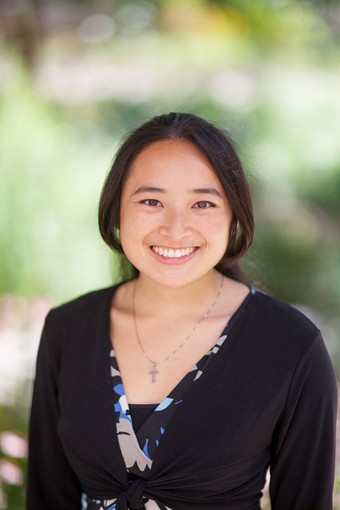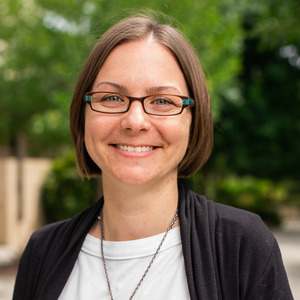
One morning during her sophomore year, sitting in Rose of Sharon Chapel, Sarah Lum (’14) knew she had a decision to make. She came to Biola interested in both pre-law and pre-med, but it was time to choose. Should she change her major to political science or stick with biochemistry?
As she prayed, she said God gave her a glimpse of a winding road — the kind she loved to ride on her motorcycle — and she felt him saying the road ahead would be curvy, but he would guide her.
Today, three years into her Ph.D. in bioanalytical chemistry at the University of Notre Dame, the road is still twisting and turning, but Lum is confident because she says, “it is clear God called me here and to this community.” In March, she received further confirmation when she won the prestigious Young Scientist Award at the MSB 2017 conference in the Netherlands.
As an undergraduate, Lum conducted research with physics professor Xidong Chen and used atomic force microscopy to create a topographic map at nanometer scales of a cell’s surface. She presented her findings at an international conference.
That experience — that twist in the journey — led to unexpected grad school opportunities and ultimately to working in an instrument development lab at Notre Dame under Norman Dovichi, who previously helped develop the primary analytical instrument used to sequence the human genome.
While attending a conference, Lum heard a presentation about the backlog of up to 500,000 unprocessed sexual assault evidence kits in the United States. As she listened, it occurred to her the technology used to sequence the genome might have an application in processing these kits and reducing the backlog. After speaking with the presenter and spending several weeks of nights and weekends testing her theory, Lum shared her idea with her advisor.
Through hard work and collaboration with other universities and forensic experts in crime labs, Lum has proven her new patented technology can reduce the current timeframe of separating victim from perpetrator DNA in sexual assault evidence kits from one week to under 15 minutes.
In her final two years at Notre Dame, Lum will continue researching, refining and presenting her work with the hope of bringing her technology and methodology into crime labs across the nation. But she knows the path to that destination still has many curves. Barriers need to be broken and policy conversations need to occur between science, law enforcement and the legal system.
Lum is asking God if her role is to communicate the science to broader audiences so the technology can move into other fields, or if it is to delve deeper into instrument development. Or perhaps it’s something she’s yet to consider. Whatever the curves in the road ahead, however, she knows God will continue to guide her.
 Biola University
Biola University
.jpg)

